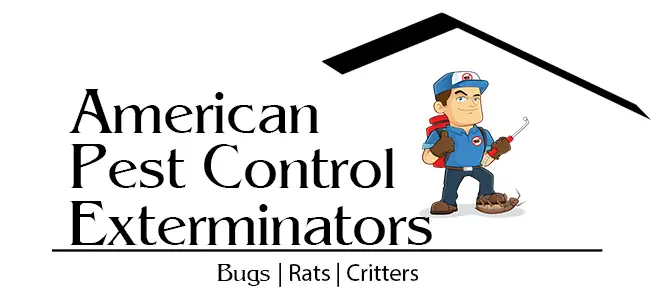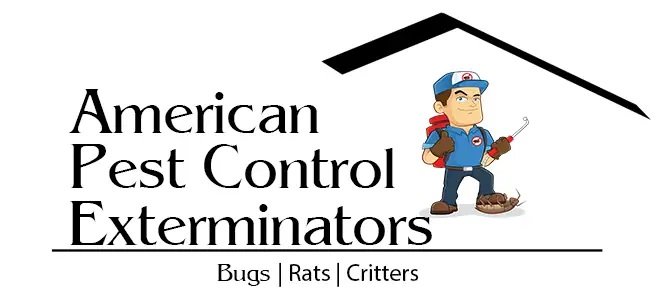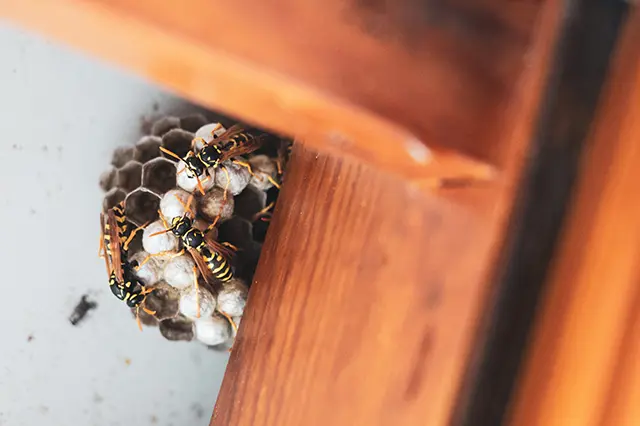
The Risks and Benefits of Relocating Wasp Nests
Wasps can be a nuisance, especially when they build nests on your property. When this occurs, it often leads to difficult decisions: Should you try to remove or relocate the nest? The answer isn’t always so straightforward. There are risks and benefits that come with relocating wasp nests. In this blog post, we will explore both sides of the issue in depth and provide some tips on how to safely manage wasp populations around your home. Read on to learn more!
The dangers of wasps
When it comes to wasps, nests are often the first thing that come to mind. But did you know that there are actually several different types of wasp nests? And each type poses different risks and benefits when it comes to relocating them.
The most common type of wasp nest is the paper wasp nest. These nests are typically found in trees or shrubs, and they can be quite large – some reaching up to 3 feet in diameter! While paper wasp nests may look daunting, they’re actually not very dangerous. The stings from these wasps are relatively mild and only cause localized pain and swelling.
However, there are two other types of wasp nests that can be much more dangerous: mud dauber nests and hornet nests. Mud daubers build their nests out of mud, which can be found on homes or other structures. These stings can be quite painful and cause serious allergic reactions in some people. Hornet nests are even more dangerous, as the sting from a hornet is significantly more painful than a paper wasp or a mud dauber. In addition, hornets have been known to attack in swarms, which can be incredibly dangerous – even deadly – for people with severe allergies.
So, what should you do if you find a wasp nest on your property? If it’s a paper wasp nest, the best course of action is to leave it alone. These nests don’t pose much of a threat, and they’ll likely be gone by winter. However, if you find a mud dauber or hornet nest, it’s best to contact a pest control expert immediately. These nests can be dangerous and should not be handled without the help of a professional.
What are the risks of relocating wasp nests?
There are a few risks associated with relocating a wasp nest. First, if the nest is not relocated far enough away from the original site, the wasps may be able to find their way back. Second, if the nest is disturbed during relocation, the wasps may become agitated and attack. Finally, there is always a risk of being stung when dealing with wasps.
What are the benefits of relocating wasp nests?
The benefits of relocating wasp nests are many. They include:
-Reducing the risk of stings: By relocating the nest, you are reducing the risk of being stung by a wasp.
-Preventing damage to your home: Wasps can cause extensive damage to your home if they build their nests in or around it. Relocating the nest can prevent this from happening.
-Saving money: The cost of relocating a wasp nest is usually much less than the cost of repairing damage that wasps can cause to your home.
-Protecting your family: Wasps can pose a serious threat to young children and people with allergies. Relocating their nest can help keep your family safe from them.
-Keeping the wasps safe: Relocating a nest can help protect the wasps from predators, harsh weather conditions, and other dangers.
-Improving your environment: By relocating a wasp nest, you can help improve the environment by reducing the number of wasps in your area.
Overall, relocating a wasp nest is a great way to protect your home, family, and the environment.
How to safely relocate a wasp nest
If you have a wasp nest on your property, you may be wondering if it’s safe to relocate it. While there are some risks associated with relocation, there are also some benefits. Here’s what you need to know about safely relocating a wasp nest:
The Risks:
–Wasp stings can be painful and dangerous, especially for those with allergies.
–Relocating a wasp nest can be difficult and dangerous, as you need to approach the nest carefully and avoid getting stung.
–There is also a risk that the wasps will simply build a new nest nearby if they’re not happy with their new location.
The Benefits:
–Wasp nests can cause damage to property, so relocating them can help prevent this.
–Relocating a wasp nest can also help reduce the risk of someone being stung, as the new location will likely be further away from people.
Safety Tips:
–Always approach the nest with caution and wear protective clothing, such as long sleeves and pants.
–Wait until dusk or dawn when the wasps are less active.
–Use an insecticide to kill the wasps in their nest before attempting to relocate it.
–Relocate the nest far away from people, and make sure it is out of sight.
–Check for wasps regularly after relocation to make sure they haven’t returned.
When to call a professional
If you’re unsure of whether or not a wasp nest is active, it’s always best to err on the side of caution and call a professional. A wasp nest that’s inactive poses no threat to humans or animals, but an active one can be extremely dangerous. Even if you don’t see any wasps around, there could be thousands of them inside the nest, and they will defend their home if they feel threatened. If you have an allergy to wasp stings, even one sting could be fatal.
Calling a professional is also the best course of action if the nest is located in a difficult-to-reach place, such as high up in a tree or in the eaves of your house. Trying to remove the nest yourself could be dangerous, and you’re likely to just end up making the problem worse. A professional will have the experience and equipment necessary to safely and effectively remove the nest.
Moving wasp nests can be a risky, but potentially beneficial endeavor. Not only does it reduce the risk of wasps entering your home, but relocating them to an appropriate area may give them a second chance of survival and prevent their destruction if they were going to be removed anyway. However, caution should always be taken when dealing with these stinging insects as their sting can cause allergic reactions in some people. Ultimately, whether or not you choose to relocate a wasp nest is up to you and should depend on the individual circumstances of each situation.

